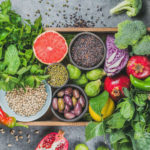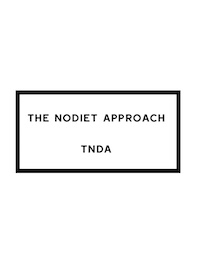Nutrition tips and Guidelines for healthy moms to be
Pregnancy is a critical phase in a women’s life as she has to be at her optimal health status.Studies showed that malnutrition during the first 16 weeks of pregnancy may create babies with higher chances of getting hypercholesterolemia.
A healthy pregnancy diet consists of enough omega 3 fatty acids (fish oils) to prevent asthma and improve immune function.An empty calorie diet can impair the development of the fetus.Pregnancy can be unexpected ,women in childbearing age should always watch their diet.
Nutrition recommendations for pregnant women:
-Eat 50 % of your calories from whole grains such as whole wheat flour,brown rice or pasta along with healthy grains and legumes.
-5-8 servings of fruits and veggies.
-Eat up to 3 servings of dairy products such as pasteurized milk,cheese and yogurts.
-A moderate quantity of low fat meat varieties such as red meat and poultry.(Do not eat raw meat or fish)
-Eat good fats such as nuts,seeds,avocados,olive oil and fish.
-Limit processed foods that are high in sugar and salt.
Men should also watch their diets during conception ,limit alcohol intake and keep a steady healthy weight for a better sperm quality.
Additional required calories during pregnancy:
*70kcal/day during first trimester
*260 kcal/day during second trimester
*500 kcal/day during third trimester
Some micronutrients are essential during conception and pregnancy such as folic acid as a prevention for spina bifida a neural tube disorder that can develop in fetus,Vitamin D, Iodine and Iron. Health practitioners will assess pregnancy supplementation depending on a blood test analysis.
High level of Vitamin A may be critical during pregnancy so avoid the consumption of liver and supplementation of retinol a precursor of vitamin A.
Pregnant women should increase their intake of omega 3 at the third trimester where the brain development of the fetus occurs.Pregnant and lactating women should consume around 100 to 200 mg of DHA/day in addition to 2 to 3 portion of fish and shellfish per week.
Vegetarian moms to be should monitor their intake of high quality protein,omega 3 and omega 6,iron,zinc,calcium,vitamin D and B12.
Pregnant and lactating women should also avoid cured meats such as smoked meats and salmon and make sure to manipulate them away from raw veggies to avoid cross-contamination.
Cooked meats such as turkey,chicken and ham are okay.
Fruits and veggies should be carefully washed and peeled to avoid toxoplasmosis contamination which is very dangerous to the fetus and gets transmitted from cat feces.
The fridge temperature should be monitored at 5 degree Celsius or less for proper food preservtion.
They should stay hydrated and consume 300 ml of water in addition to regular water consumption so a total of 1.8 to 2.3 L/day.
They can have up to 200mg of caffeine per day the equivalent of 2 cups of coffee or 2 to 4 cups of tea.Symptoms such as nausea often occur during the first trimester,specially after long hours of fasting basically it is advised to snack on toasts or crackers in the morning and avoid having heavy meals but rather small frequent meals.Ginger is one of the most powerful ingredients against nausea so it can be boiled as ginger tea as a morning sickness remedy.
Physical activity is important during pregnancy such as light intensity fitness for example walking,swimming or prenatal yoga.It is important not to overdo it and in case of abnormal symptoms to immediately call your doctor.
Breastfeeding is very important for the mom and the fetus and is essential for immunity and baby and mom relationship. Studies showed that breastfeeding for 6 month can lower babies chances of becoming obese.
A healthy diet and lifestyle are essential in pregnancy and conception to insure a proper fetal development .Women should provide special attention to the way they prepare and cook food to avoid food borne illness and intoxication which can affect the baby’s wellbeing.






















